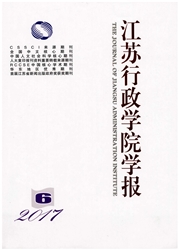

 中文摘要:
中文摘要:
马歇尔-勒纳条件认为,若一国的出口弹性与进口弹性的绝对值之和大于1,则本币贬值可改善本国国际收支。自1995年以来,无论是按照CPI还是EPI计算的人民币实际有效汇率,人民币币值一直被低估,升值压力确实存在;中国出口和进口弹性的绝对值之和大于1,满足马歇尔-勒纳条件的前提条件。但对2000年SAM冲击分析的计算结果表明,不能得到按照实际有效汇率计算的人民币贬值有助于中国贸易平衡项得到改善的结论,即马歇尔-勒纳条件在中国不适用。研究结论:第一,应该慎重对待人民币升值问题,通过温和、缓慢的升值对社会、经济的影响较小;第二,人民币升值将有利于改善中国贸易平衡项;最后,人民币升值所产生的国内就业压力将有可能对资本形成、个人所得税和政府对企业的转移支付产生一定的消极影响。
 英文摘要:
英文摘要:
Marshall-Lerner condition holds that if the absolute value of a nation's export flexibility plus that of import flexibility is bigger than one, devalue of home currency can improve international balance of the nation. Since 1995, actual effective exchange rate of RMB, whether calculated by CPI or EPI, and RMB itself are under evaluated and there exists pressure for revalue ; the absolute value of Chinese export flexibility plus that of import flexibility is bigger than one and it satisfies Marshall-Lerner precondition but by calculating the impact of SAM in 2000, we can't draw the conclusion that devalue of RMB calculated by actual effective exchange rate will improve China's trade balance, i. e. , Marshall-Lerner condition is not applicable in China. Conclusions: firstly, revalue of RMB should be handled carefully, mild and slow revalue having less influence upon the society and economy; secondly, revalue of RMB will improve China's trade balance; finally, domestic employment pressure caused by the revalue of RMB will possibly have a negative effect on the formation of capital, individual income tax and transferred payment of government to businesses.
 同期刊论文项目
同期刊论文项目
 同项目期刊论文
同项目期刊论文
 期刊信息
期刊信息
